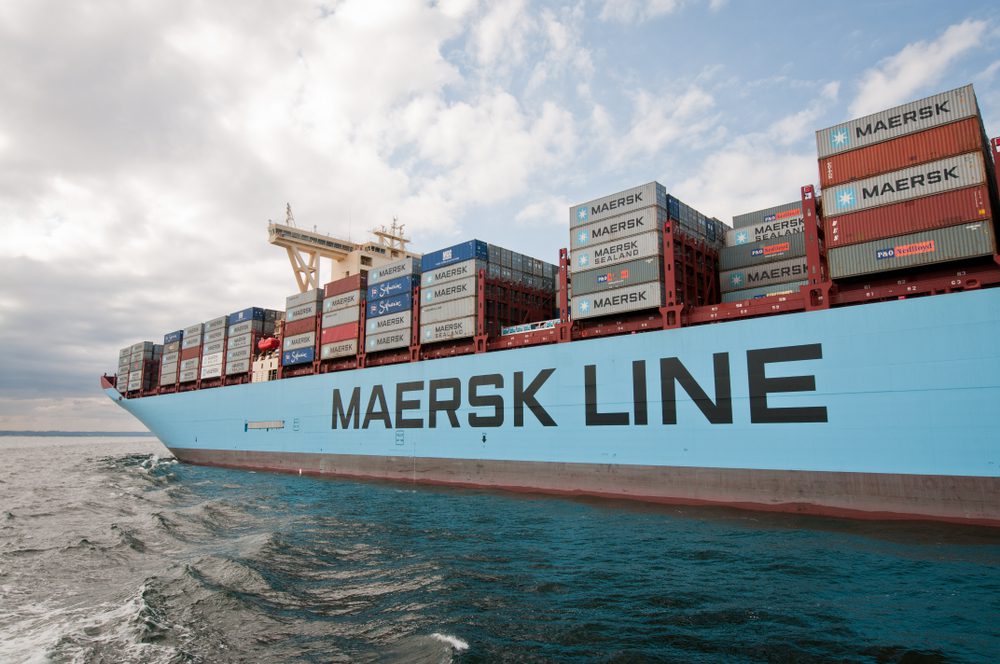Maersk, the Danish shipping giant, issued a warning on Thursday, stating that container shipping overcapacity would have a more significant impact on profits than previously expected this year. This announcement, coupled with the news that Maersk has suspended its share buyback program, comes as a stark contrast to recent investor optimism about the sector.
Despite container shippers being among the best-performing stocks in Europe this year, with the re-routing of vessels following attacks on shipping by Houthi militants in the Red Sea boosting freight rates, Maersk’s shares plummeted by 17% at 1321 GMT to levels last seen before the Red Sea disruptions began in December. Shares in rival Hapag-Lloyd also experienced an 11% decline.
Maersk, like other shippers, has been diverting vessels on a longer route around Africa. Some analysts had anticipated that extended journey times and higher freight rates would offset a significant increase in new container ships entering the market. However, Maersk CEO Vincent Clerc informed reporters that about twice as many new vessels were entering the market compared to the extra capacity required to send ships around Africa.
The pandemic-induced boost to shipping profits led to a surge in new ship orders. Vessels delivered at the end of last year were used to cover the gaps created by longer voyages around Africa. However, Clerc cautioned that the overcapacity would only fully materialize during 2024 and would be felt in 2025 and possibly into 2026.
“We will see that there are too many ships in the world compared to the number of containers that need to be transported,” Clerc said. “Even if a year from now we’re still sailing south of Africa, excess capacity and pressure on prices will persist.”
Maersk, often seen as a barometer of world trade, expects underlying earnings before interest, tax, depreciation, and amortization (EBITDA) to range between $1 billion and $6 billion this year, compared to the $9.6 billion achieved last year. This projection is lower than the $6.6 billion EBITDA forecasted by analysts in an LSEG poll.
“We assumed guidance would be conservative, but we view these figures as rather pessimistic and within our expectations prior to the Red Sea disruptions,” noted Jefferies analysts in a research note.
Analysts at JP Morgan anticipate that the Red Sea events will boost earnings in the first quarter. However, they believe that “the general state of overcapacity is likely to return as 2024 progresses” and may continue into 2025.
Maersk stated that one-third of its container volumes were impacted by the Red Sea disruptions. Last month, the company attempted to resume sailing through the Red Sea, but Clerc stated that the U.S. Navy has indicated it cannot currently guarantee safe passage through the area.
“It’s not going to be the case that just because nothing has happened there for a week, we can try again,” he said. “We need to be sure that the day we return to the Red Sea, it’s because we believe we can do it permanently.”
Clerc emphasized that the Red Sea crisis did not match the scale of disruption caused by the pandemic, which saw freight rates and shippers’ profits bolstered by multiple shocks, including lockdowns, changing consumer behavior, and bottlenecks.
(Source: WSJ | Reuters | CNBC | Financial Times)









